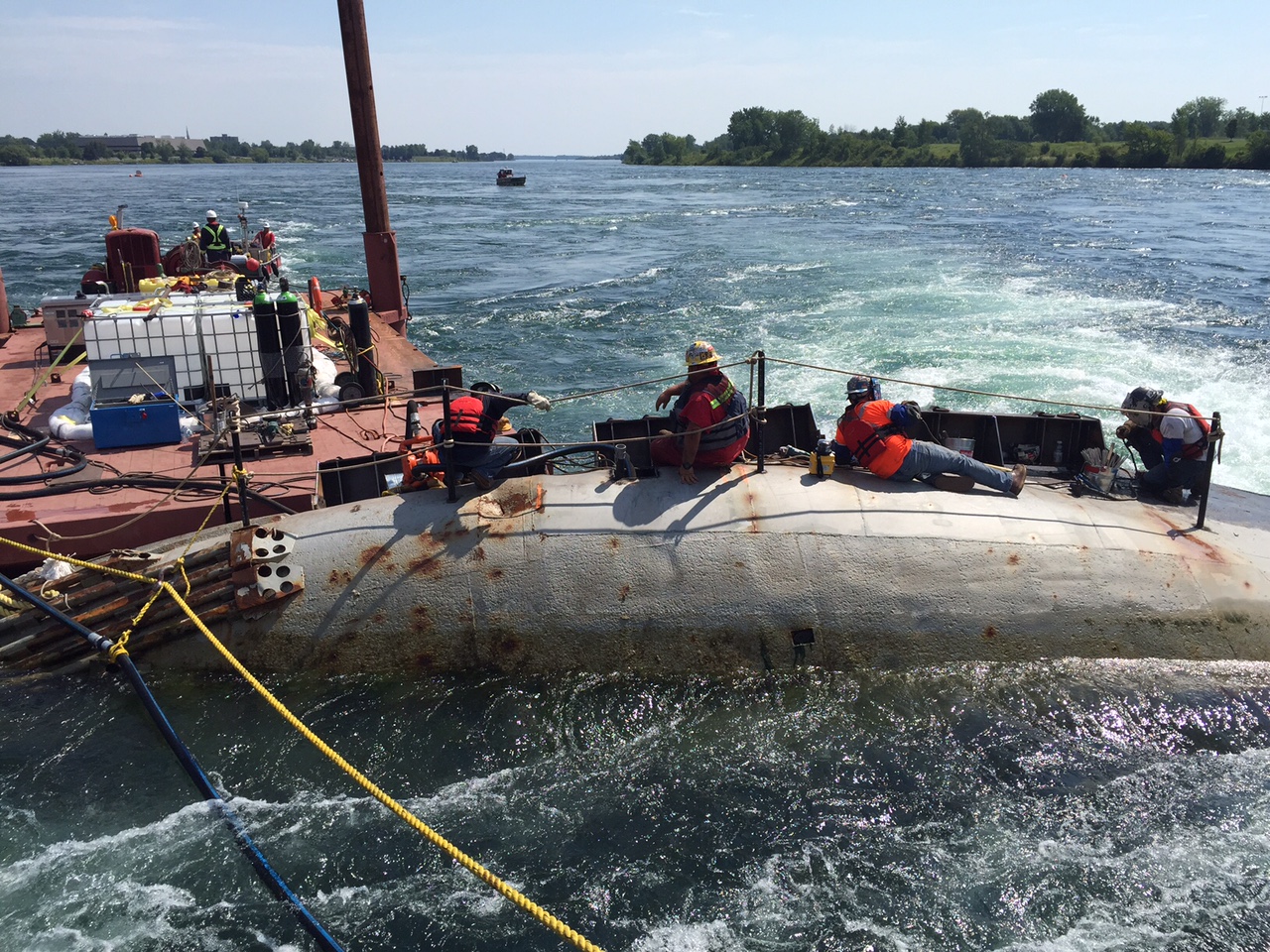CORNWALL, Ontario – Nearly all of the diesel from a pair of stricken tugboats has been removed or forced out of fuel tanks by rushing water, a Canadian Coast Guard representative said Wednesday evening.
J.J. Brickett, Canadian Coast Guard Superintendent of Environmental Response, said in an interview the Lac Manitoba – the larger of two tugs capsized in the St. Lawrence River at Cornwall – had all but perhaps 30 litres of diesel fuel removed in salvage operations Wednesday.
The next step will see the engine space of the vessel pumped free of oily water Thursday. That space was likely contaminated by lubricants used on the massive engines used to power the tug.
Once that operation is completed Thursday, recovery of the wreck is scheduled for Friday, when the Lac Manitoba will be raised from the river bottom by a massive crane and placed on a barge.
Brickett said the Lac Manitoba had about 9,000 litres of diesel fuel on board when it capsized in late June while positioning a barge on the river. He said it’s unknown how much of the fuel was spilled into the river during the tug’s month-long stay in the water, because calculations are still being completed on how much has been removed from the tanks.
The Lac Manitoba has a pair of huge fuel tanks that have been nearly completely voided of fuel.
Brickett said salvage workers are likely to reposition their equipment over the weekend in advance of recovering the LCM 131, a smaller support tug that capsized as well.
Brickett added the 200 litres of diesel that was aboard the LCM 131 when it capsized has been washed away by the powerful river current in that region.
There have been reports of some sheening on the river, and drinking prohibitions have been ordered for some regions downstream of the wreck that take their water directly from the river, but there have been no massive releases of toxins reported.



